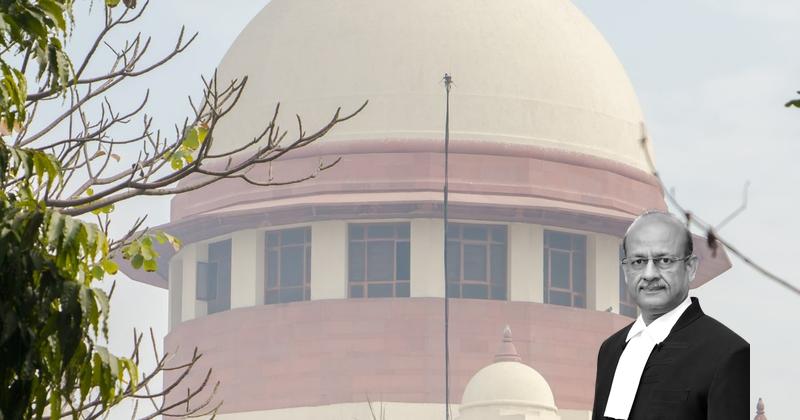The legal case delves into a significant legal analysis conducted by the court regarding the liability of an elderly defendant in a domestic harassment case. The court’s thorough examination explores the complexities of the law and its implications in sensitive situations, setting a precedent for future legal proceedings.
Facts
- Accused No. 2, the mother-in-law of the victim, appealed the judgement and order of conviction and sentence imposed by the Trial Court under Section 498A IPC.
- The High Court upheld the conviction of accused No. 2 under Section 498A IPC but acquitted accused No. 2 for the offence under Section 306 IPC.
- The Trial Court acquitted accused No. 4 but convicted accused Nos. 1 to 3 for offences under Sections 498A and 306 IPC.
- The High Court set aside the conviction of accused Nos. 1 and 3 for the offence under Section 498A IPC.
- The High Court partially allowed the appeal and acquitted all the accused for the offence under Section 306 IPC.
- The case was committed to the Court of Sessions as Sessions Case No 203 of 2008.
- 16 witnesses were examined by the prosecution to bring charges against the accused.
- The victim was taken to the hospital but succumbed to her injuries.
- Charge sheet was filed against accused Nos. 1 to 4 for offences under Sections 498A and 306 of IPC.
- Documentary evidence was brought on record by the prosecution through witnesses.
- Statements of the accused under Section 313 Cr.P.C. were recorded after completion of prosecution’s evidence.
- Accused denied all charges and claimed they were falsely implicated.
- Complaint was lodged by PW-1 Ramathilagam, mother of the victim, alleging harassment and cruelty by all accused towards the deceased.
- Accused were charged for offences under Sections 498A and 306 IPC, and pleaded not guilty.
Also Read: Ruling on Circumstantial Evidence in Murder Case
Arguments
- Shri S. Nagamuthu, learned Senior Advocate, represented the appellant, original accused No.2.
- No representation from the respondent State despite being served.
- The appellant’s counsel argued that both the Trial Court and the High Court were wrong in finding the appellant guilty of the offence under Section 498A of the IPC.
- The appellant’s counsel argued that the evidence of prosecution witnesses PW-1 to PW-3 should be disbelieved based on the High Court’s acquittal of other accused.
- Due to the severity of the injuries sustained by the deceased, she would not have been able to make any statement.
- The deceased’s quarrel with her husband and family over his return to Saudi Arabia was cited as the root cause of the dispute leading to her suicide.
- The domestic quarrel over the husband’s return to Saudi Arabia was argued not to amount to harassment under Section 498A IPC.
- In the alternative, due to the appellant being an 80-year-old woman, a lenient view is requested if the conviction is upheld for imposing the sentence.
Also Read: Challenging Legal Presumptions in Negotiable Instrument Cases
Analysis
- Both the victim’s mother and father, along with another witness, supported the prosecution’s case.
- The incident took place in 2006, and the victim’s husband was residing abroad at the time.
- Delay in trial or appeal decisions is not a valid reason to avoid imposing punishment.
- The appellant, who was between 60-65 years old during the incident, was found guilty of cruelty towards her daughter-in-law.
- Not protecting the daughter-in-law made her vulnerable, emphasizing the seriousness of the offense.
- The appellant’s gender and relationship make her lack of sensitivity towards the daughter-in-law more significant.
- Both trial and High Court findings supported the guilt of the mother-in-law under Section 498A of IPC.
- Concurrent findings by both courts regarding harassment and cruelty towards the victim for jewelry were considered.
- Witnesses’ statements were consistent even after thorough cross-examination.
- The victim’s mother and father testified to the harassment the victim faced due to jewelry, supported by other witnesses’ testimonies.
- The duty of the mother-in-law and her family was to take care of the daughter-in-law, not harass, torture, or be cruel to her over jewels or other issues.
- No leniency is required in this case and some punishment must be given.
- Considering the incident occurred in 2006 and the appellant’s age (approximately 80 years old), the sentence is reduced to three months R.I. with the maintained fine imposed by the Trial Court.
Also Read: Legal Analysis Critique in High Court’s Quashing Order
Decision
- The appellant’s conviction is confirmed for the offence under Section 498A IPC.
- The appellant’s sentence is reduced to three months R.I with fine.
- The appellant must surrender within four weeks to undergo the revised sentence.
- The appellant’s bail bond is cancelled.
Case Title: MEERA Vs. STATE BY THE INSPECTOR OF POLICE THIRUVOTRIYUR POLICE STATION CHENNAI (2022 INSC 35)
Case Number: Crl.A. No.-000031-000031 / 2022



